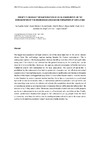Identificador persistente para citar o vincular este elemento:
https://accedacris.ulpgc.es/jspui/handle/10553/18167
| Campo DC | Valor | idioma |
|---|---|---|
| dc.contributor.author | Espírito Santo, Iva | en_US |
| dc.contributor.author | Martins, Samir | en_US |
| dc.contributor.author | Simba, Daniel | en_US |
| dc.contributor.author | Marco, Adolfo | en_US |
| dc.contributor.author | Abella Pérez, Elena | en_US |
| dc.contributor.author | Sanz, Paula | en_US |
| dc.contributor.author | Da Graça, Jesemine | en_US |
| dc.contributor.author | López-Jurado, Luis Felipe | en_US |
| dc.date.accessioned | 2016-08-05T02:30:29Z | |
| dc.date.accessioned | 2018-06-18T06:45:18Z | - |
| dc.date.available | 2016-08-05T02:30:29Z | |
| dc.date.available | 2018-06-18T06:45:18Z | - |
| dc.date.issued | 2010 | en_US |
| dc.identifier.uri | https://accedacris.ulpgc.es/handle/10553/18167 | - |
| dc.description.abstract | The loggerhead population of Cape Verde is one of the most important in the world. Several islands from this archipelago capture nesting females for human consumption. This a widespread practice in the local population that can be killing more than 25% of nesting females every year. This activity is not relevant for the general economy of the country but can be important for some families. Moreover, the capture, sale and consumption of turtle meat are a traditional activity very widespread in the local population. The capture of sea-turtles is prohibited by the caboverdian law but the protection measures are not efficient and actual capture rates of nesting females are unsustainable and are significantly contributing to the quick decline of this important loggerhead population. Uncontrolled development of touristic resorts is also threatening some important nesting beaches. Some Spanish organizations coordinated by the NGO Cabo Verde Natura 2000, in collaboration with the Government of Cape Verde, are implementing some actions to inform and educate the population about the importance of conserving sea turtles as an important natural resource than can offer more benefits to their life and economy if they remain alive. Moreover, several developmental and sustainable projects are being implemented to improve the economy of individuals who are killing turtles. Finally, several professional development programs for caboverdian young people from the local communities have been started in order to develop activities related to sea turtle conservation such as turtle watching ecoturism, beach vigilance or turtle monitoring. | en_US |
| dc.format | application/pdf | es |
| dc.language | eng | en_US |
| dc.source | 28th ISTS Symposium on Sea Turtle Biology and Conservation, Loreto, BCS, México, 2008, p. 225 | en_US |
| dc.subject | 24 Ciencias de la vida | en_US |
| dc.subject | 2401 Biología animal (zoología) | en_US |
| dc.subject | 240116 Herpetología | en_US |
| dc.title | Efforts to increase the participation of local communities in the conservation of the endangered loggerhead population of Cape Verde | en_US |
| dc.type | info:eu-repo/semantics/conferenceObject | en_US |
| dc.type | ConferenceObject | es |
| dc.investigacion | Ciencias | en_US |
| dc.rights.accessrights | info:eu-repo/semantics/openAccess | es |
| dc.type2 | Actas de congresos | en_US |
| dc.identifier.ulpgc | Sí | es |
| item.grantfulltext | open | - |
| item.fulltext | Con texto completo | - |
| crisitem.author.orcid | 0000-0001-6380-6130 | - |
| crisitem.author.fullName | López Jurado, Luis Felipe | - |
| Colección: | Actas de congresos | |
Los elementos en ULPGC accedaCRIS están protegidos por derechos de autor con todos los derechos reservados, a menos que se indique lo contrario.
